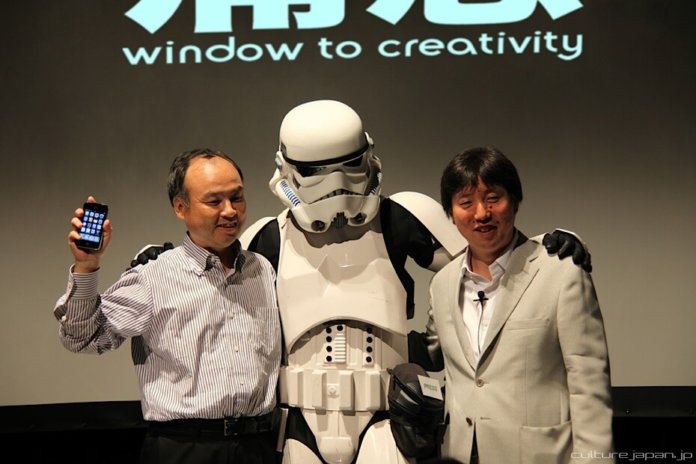
He’s been called the Japanese Bill Gates and, for a brief moment, was worth even more than the iconic tech pioneer. He is widely recognized as the 2nd wealthiest person in Japan and, with more the two and a half million Twitter followers, is one of the more popular businessmen in the country.
There’s one more pertinent fact about Masayoshi Son’s business success – he once lost more than $70 billion, the highest amount of personal wealth anyone has ever lost in the history of recorded time. For most men, that kind of loss would be devastating – a crippling blow from which there is no return.
Masayoshi Son is not most men.
More than 15 years after the crash, he continues to be one of the most wealthy and successful men in Japan as the founder and CEO of telecom giant Softbank and chairman of Sprint. So how did he survive that loss? The same way he built it in the first place – with the risk tolerance of a riverboat gambler and the vision to look decades, not years, into the future.
Early Days
Masayoshi Son was born in Japan to a second generation Korean family. At his birth, the family took the adopted Japanese surname name Yasumoto instead of Son, a common practice for foreigners living in Japan who were subject to intense discrimination. He would later change his name back to his ancestral surname Son, claiming, “Instead of saying “No discrimination,” I’d rather proudly use my real name, do my job in the face of opposition, run a business and score successes.” At the age of 16, Son moved to California to study, eventually winding up at the University of California in Berkeley.
Right away it became clear, that Masayoshi Son was going to be someone to be reckoned with. He partnered with Berkeley Professor Forrest Mozer who had invented a speech synthesizer a few years earlier. For a story in Arstechnia in 2012, Mozer recalled his first impression of Son.
“I told my wife the day I met him, “That guy was going to own Japan one day,’ and I didn’t realize how true that was,” Mozer said.
The Rise of Son
In September of 1981, Son founded Softbank and within three years, cornered 50% of the computer software company in Japan. As the internet took off in the mid 1990’s Son made a bold play by forming Yahoo Japan, the Japanese run arm of the international giant. For Son, it was important to have a Japanese controlled entity to ensure its long-term success. This is a vision that was unique at the time and even to this day.
Yahoo Japan struck a deal to use Google’s algorithm and as a result, Yahoo is the most popular search engine in Japan despite its failures elsewhere. Son had made a series of bold and shrewd business moves, investing heavily in dotcoms as the 20th century drew to a close. This fearless approach was the reason for his early success and the eventual collapse.
“He’s not an establishment player,” Steve Vogel, a professor of political science and the chair of the Center of Japanese Studies at the University of California, Berkeley, tells Arstechnia. “He’s a very aggressive, risk-taking, entrepreneurial person. He’s been colossally successful and had some colossal failures.”
The Crash
The most significant of these colossal failures took place when announced his intention to pay $15 billion in cash for Vodafone Japan. The idea was to compete with the government owned NTT Docomo network. The market did not respond well to this move and the Softbank stock started to decline. And when the global dotcom bubble burst and within 18 months, Softbank lost 99% of its market capital from $200 Billion to $2 Billion. Son’s personal wealth declined by $70 billion over that same time.
Despite the huge setback, Son carried on as if it were business as usual. That was because in his eyes, it was. He refused to accept that there was a dotcom bubble in the first place. To him, the crash was a simple market correction, a position on which he elaborated in a 2015 interview with Quartz:
“I do not think this is the Internet bubble. On year 2000, most internet companies were losing a lot of money… So there was a correction of the price. But if you look at right now, most of the stocks that went down, crashed year 2000, did they come back in the price? Did they go even higher the price of that peak price of the year 2000? The answer is, yes, so that means even the ‘net bubble crash on year 2000 was not really a ‘net bubble, if you think back from today.”
The Road Back
In the years following the bubble/market correction, Son saw mobile phones as the key to building his company back up again. And once again, it was his gun-slinging visionary approach that would prove successful.
In 2006, before the first iPhone was even released, he made a deal with Apple to be the sole distributor of the iPhone in Japan. At the time, the success of the iPhone was no sure thing. But Son took the gamble and used his internet business to offer customers a free iPhone for every new internet subscription. What followed was massive success. The iPhone quickly became the dominant smartphone in Japan and Softbank increased its subscriber base from 16 to 35 million.
The Moral of the Story
The story of Masayoshi Son is not one of redemption, but rather perseverance. The unique belief in himself and his instincts in the face of setbacks could have felled lesser men, but his razor sharp focus and a brash confidence unseen in Japanese business circles has made him a unique success when Japan Inc is struggling. It is also why despite losing $70 billion of personal wealth, he remains an icon of Japanese business success to this very day.









